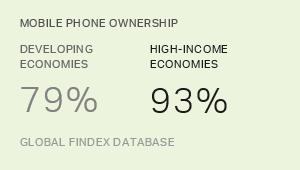PRINCETON, NJ -- Over half of Americans say they are worse off financially now than they were a year ago, tied for the most negative reading in ������'s 32-year history of asking this question. Still, close to 6 in 10 say they hope to be better off at this time next year. And despite the recent financial crisis, these results are no worse than those of four months ago, at the beginning of the summer.


Americans are as likely to say they are worse off financially compared to a year ago as they have been at any time since 1976, when ������ first asked the question. About a quarter of Americans are holding on to a more positive mental attitude, and say they are better off than a year ago.
Of interest is that Americans were identical in their negativity in late May/early June of this year (matching the current reading as the most negative in ������'s history), well before the current Wall Street and financial crisis. This is an important reminder that Americans' gloomy financial outlook did not begin just over the last several weeks, but has been in place for a while now amid rising gas prices, inflation worries, and rising joblessness.
On the other hand, in terms of predicting their financial future, Americans -- as is typical -- are relatively rosy.
The 58% who say they will be better off in a year is certainly more positive than many previous readings on this measure over the years, including the late 1970s and early 1980s, when well under half of Americans said they would be better off financially in a year. The highest reading for "better off in a year" came in March 1998, when 71% gave this positive response.
The current "better off in a year" reading is up slightly from late May/early June of this year. This suggests, but of course does not prove, that there may be some slight benefit from last week's attempts to pass legislation designed to improve the financial future. Or it could reflect the relative stabilization of gas prices. (The current data were collected through Saturday of this past weekend and do not reflect the events of Monday relating to possible congressional legislation and the drop in the stock market.)
The weekend USA Today/������ poll also asked Americans how worried they were about a list of five financial concerns. Based on a rank ordering of those who are "very" and "moderately" worried, Americans are most concerned about not having enough money for retirement and not being able to maintain the standard of living they enjoy. On a relative basis, Americans are least worried that they will not be able to make the minimum payments on their credit cards.

The trend data on these measures suggests that worry has increased as of April of this year, but has not increased since then.
For example, the accompanying graph displays the trend on the percentage "very worried" about "not being able to maintain the standard of living you enjoy" and "not having enough to pay your normal monthly bills." Worry on these measures edged up in April to new highs, but is essentially the same now. The bottom line here: The recent problems on Wall Street have seemed not to make consumers' perceptions about their own finances any worse than they already were earlier this year.




Survey Methods
Results are based on telephone interviews with 1,011 national adults, aged 18 and older, conducted Sept. 26-27, 2008. For results based on the total sample of national adults, one can say with 95% confidence that the maximum margin of sampling error is ±3 percentage points.
Interviews are conducted with respondents on land-line telephones (for respondents with a land-line telephone) and cellular phones (for respondents who are cell-phone only).
In addition to sampling error, question wording and practical difficulties in conducting surveys can introduce error or bias into the findings of public opinion polls.
To provide feedback or suggestions about how to improve ������.com, please e-mail feedback@gallup.com.
